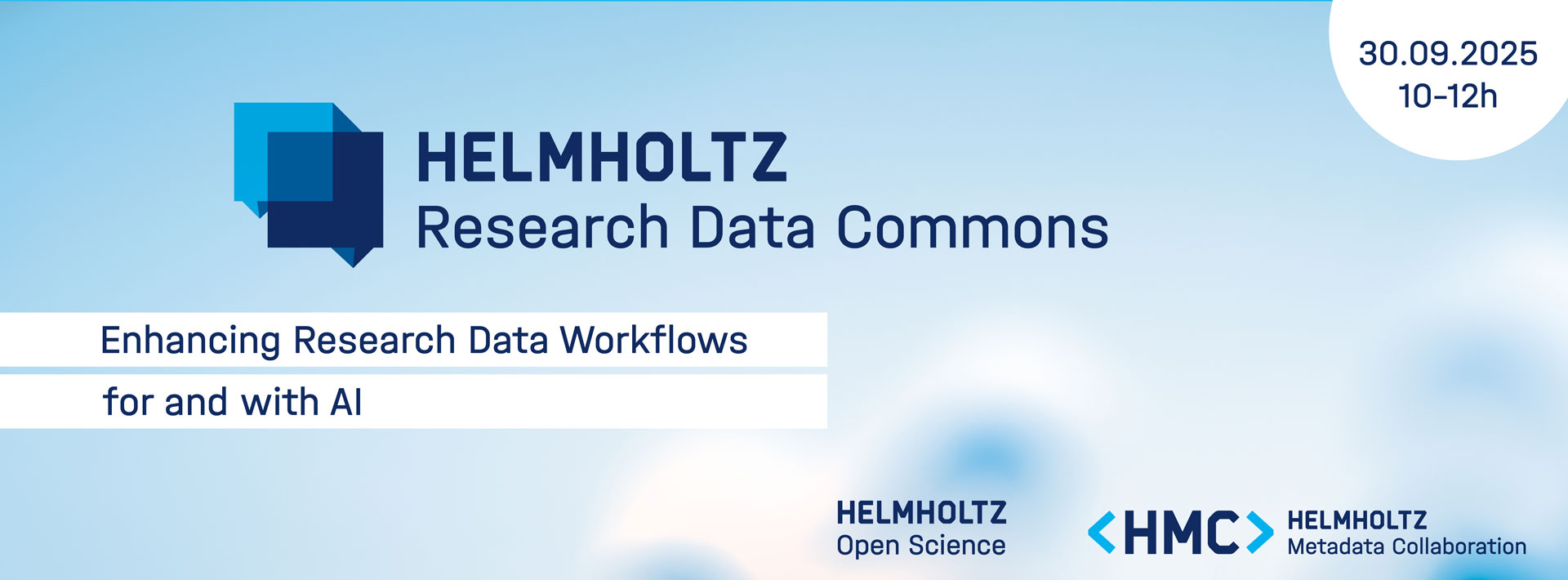2nd Forum Helmholtz Research Data Commons: Enhancing Research Data Workflows for and with AI
Zoom
online

The Helmholtz Metadata Collaboration (HMC) and the Helmholtz Open Science Office invite you to the second iteration of the Helmholtz Research Data Commons on September 30, 10:00 to 12:00 CEST, this time focussing on: Enhancing Research Data Workflows for and with AI. In this online event, colleagues from the AI team at the Jülich Supercomputing Center will provide practical insights into preparing research data for AI and showcase their AI tool BLABLADOR, a free and privacy-aware Helmholtz AI LLM service, and its possible applications in research data analysis. Following on, a research data use case employing BLABLADOR's capabilities will be presented. The event will include an open discussion round on the topic with the speakers, which everyone is invited to participate in.
For participation, please register here.
Research Data Commons is a joint recurring Helmholtz-forum for the exchange and discussion of research data-relevant topics at Helmholtz, initiated in 2024 by the Helmholtz Metadata Collaboration (HMC) and the Helmholtz Open Science Office. The events are open to employees from all Helmholtz centers to share their experiences and approaches around specific focus topics.
Helmholtz Open Science Office;
Helmholtz Metadata Collaboration
